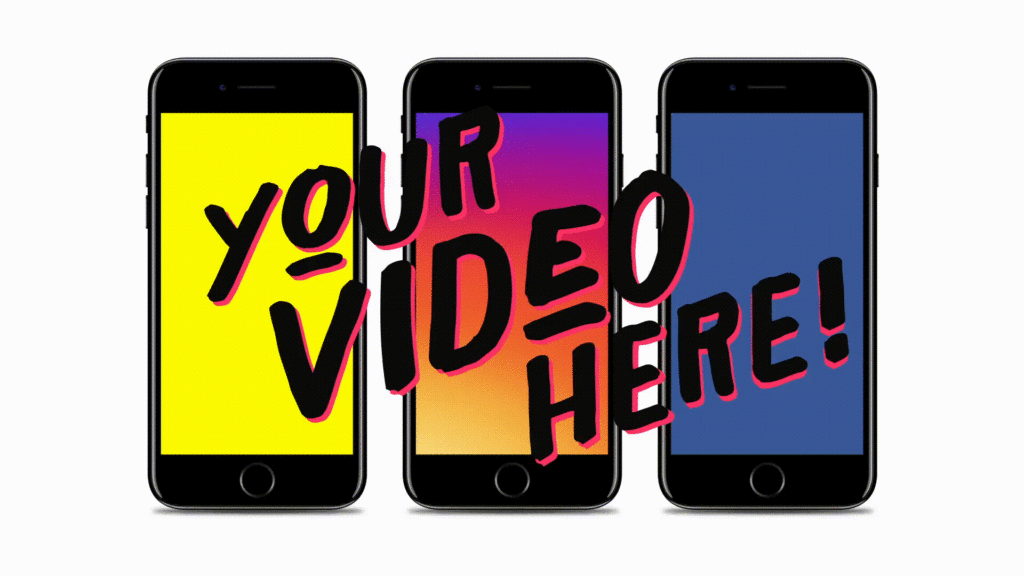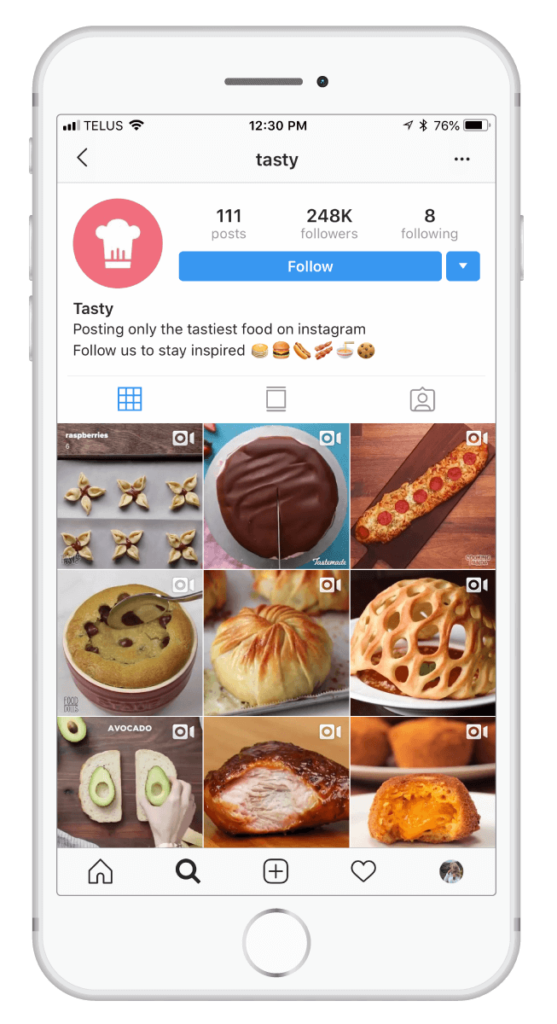The Difference Between Paid, Organic & Earned Media
Where do you watch your video?
More and more of us are cutting the cord and turning to our phones, tablets and streaming services like Netflix for our media fix.
Gigantic as Netflix is however, it’s no YouTube. Globally, YouTube is the consumers leading source of video content, at 83% (Facebook is second, at 67%). That is quite the shift and doesn’t seem to be slowing down anytime soon – by 2021, Cisco projects that video content will make up 82% of all consumer internet traffic.
It’s true, Video has come a long way in a short time and why shouldn’t it?! Video assets have never been cheaper to produce. And can be deployed across all of your marketing channels and platforms: here is how to get the most out of it.
Paid Media
Once the domain of TV, radio, and print, paid media has obviously come a long way over the years.
Now you have a plethora of options and how to guides, readily available from – Performance-Based Video Campaigns, Guides to Vertical Video, Twitter Videos Ads, and Quick tips to improve Pinterest ads.
Literally everything from boosting content, to promoting live video and everything in-between!

Organic Media
Think your Facebook page, Instagram feed, YouTube channel, Pinterest board, Snapchat or twitter feed.
Odds are you and your organization are already pumping out great content on these mediums. For organic content to have cut-through, it needs to resonate with your audience. It needs to be interactive and engaging. Buzzfeed’s Tasty continues to make our taste buds water with their organic presence. With short and sweet videos, their content is highly engaging, shareable and taps into the DIY trend. Use these channels to show extended versions of what you are promoting across your paid efforts. Talk about free press!

Earned Media
The great thing about video content is that it gets people talking.
Earned media is quite simply the term used to refer to free views, attributed when someone links, shares, posts or otherwise talks about your content in the market. Earned Media fulfills two requirements: 1) You didn’t pay for it and 2) you didn’t do it yourself on your own branded web/social outlets. Think of it as an amplification of your voice, reaching users you would otherwise not be able to reach. News stories, social media mentions, shares and retweets, product reviews, and external blog posts all contribute to this.
Remember the excitement you had when you first saw your name on a Coca-Cola bottle? The Coca-Cola “Share a Coke” campaign gave people an opportunity to express themselves through a bottle of Coke, and to share the experience with somebody else.
This personalization campaign was so successful, not only has it returned, but it was able to reverse a decade-long decline in Coke consumption, boosting its soft drink sales by 2 percent.
How does your company leverage earned, owned, and paid media? Together, these three ways of using video assets will help your brand tell the story. It doesn’t need to be expensive, and you don’t need long form content. The secret is the right mix of placements, clever targeting and the engaging creative.
Want to learn more about creating your own video assets? Learn how AdParlor can help you quickly and efficiently generate countless, personalized creative designed to perform across placements and platforms.
The post The Difference Between Paid, Organic & Earned Media appeared first on AdParlor.
Related Posts
Categories
- 60% of the time… (1)
- A/B Testing (2)
- Ad placements (3)
- adops (4)
- adops vs sales (5)
- AdParlor 101 (43)
- adx (1)
- algorithm (1)
- Analysis (9)
- Apple (1)
- Audience (1)
- Augmented Reality (1)
- authenticity (1)
- Automation (1)
- Back to School (1)
- best practices (2)
- brand voice (1)
- branding (1)
- Build a Blog Community (12)
- Case Study (3)
- celebrate women (1)
- certification (1)
- Collections (1)
- Community (1)
- Conference News (1)
- conferences (1)
- content (1)
- content curation (1)
- content marketing (1)
- contests (1)
- Conversion Lift Test (1)
- Conversion testing (1)
- cost control (2)
- Creative (6)
- crisis (1)
- Curation (1)
- Custom Audience Targeting (4)
- Digital Advertising (2)
- Digital Marketing (6)
- DPA (1)
- Dynamic Ad Creative (1)
- dynamic product ads (1)
- E-Commerce (1)
- eCommerce (2)
- Ecosystem (1)
- email marketing (3)
- employee advocacy program (1)
- employee advocates (1)
- engineers (1)
- event marketing (1)
- event marketing strategy (1)
- events (1)
- Experiments (21)
- F8 (2)
- Facebook (64)
- Facebook Ad Split Testing (1)
- facebook ads (18)
- Facebook Ads How To (1)
- Facebook Advertising (30)
- Facebook Audience Network (1)
- Facebook Creative Platform Partners (1)
- facebook marketing (1)
- Facebook Marketing Partners (2)
- Facebook Optimizations (1)
- Facebook Posts (1)
- facebook stories (1)
- Facebook Updates (2)
- Facebook Video Ads (1)
- Facebook Watch (1)
- fbf (11)
- first impression takeover (5)
- fito (5)
- Fluent (1)
- Get Started With Wix Blog (1)
- Google (9)
- Google Ad Products (5)
- Google Analytics (1)
- Guest Post (1)
- Guides (32)
- Halloween (1)
- holiday marketing (1)
- Holiday Season Advertising (7)
- Holiday Shopping Season (4)
- Holiday Video Ads (1)
- holidays (4)
- Hootsuite How-To (3)
- Hootsuite Life (1)
- how to (5)
- How to get Instagram followers (1)
- How to get more Instagram followers (1)
- i don't understand a single thing he is or has been saying (1)
- if you need any proof that we're all just making it up (2)
- Incrementality (1)
- influencer marketing (1)
- Infographic (1)
- Instagram (39)
- Instagram Ads (11)
- Instagram advertising (8)
- Instagram best practices (1)
- Instagram followers (1)
- Instagram Partner (1)
- Instagram Stories (2)
- Instagram tips (1)
- Instagram Video Ads (2)
- invite (1)
- Landing Page (1)
- link shorteners (1)
- LinkedIn (22)
- LinkedIn Ads (2)
- LinkedIn Advertising (2)
- LinkedIn Stats (1)
- LinkedIn Targeting (5)
- Linkedin Usage (1)
- List (1)
- listening (2)
- Lists (3)
- Livestreaming (1)
- look no further than the new yorker store (2)
- lunch (1)
- Mac (1)
- macOS (1)
- Marketing to Millennials (2)
- mental health (1)
- metaverse (1)
- Mobile App Marketing (3)
- Monetizing Pinterest (2)
- Monetizing Social Media (2)
- Monthly Updates (10)
- Mothers Day (1)
- movies for social media managers (1)
- new releases (11)
- News (72)
- News & Events (13)
- no one knows what they're doing (2)
- OnlineShopping (2)
- or ari paparo (1)
- owly shortener (1)
- Paid Media (2)
- People-Based Marketing (3)
- performance marketing (5)
- Pinterest (34)
- Pinterest Ads (11)
- Pinterest Advertising (8)
- Pinterest how to (1)
- Pinterest Tag helper (5)
- Pinterest Targeting (6)
- platform health (1)
- Platform Updates (8)
- Press Release (2)
- product catalog (1)
- Productivity (10)
- Programmatic (3)
- quick work (1)
- Reddit (3)
- Reporting (1)
- Resources (34)
- ROI (1)
- rules (1)
- Seamless shopping (1)
- share of voice (1)
- Shoppable ads (4)
- Skills (28)
- SMB (1)
- SnapChat (28)
- SnapChat Ads (8)
- SnapChat Advertising (5)
- Social (169)
- social ads (1)
- Social Advertising (14)
- social customer service (1)
- Social Fresh Tips (1)
- Social Media (5)
- social media automation (1)
- social media content calendar (1)
- social media for events (1)
- social media management (2)
- Social Media Marketing (49)
- social media monitoring (1)
- Social Media News (4)
- social media statistics (1)
- social media tracking in google analytics (1)
- social media tutorial (2)
- Social Toolkit Podcast (1)
- Social Video (5)
- stories (1)
- Strategy (608)
- terms (1)
- Testing (2)
- there are times ive found myself talking to ari and even though none of the words he is using are new to me (1)
- they've done studies (1)
- this is also true of anytime i have to talk to developers (1)
- tiktok (8)
- tools (1)
- Topics & Trends (3)
- Trend (12)
- Twitter (15)
- Twitter Ads (5)
- Twitter Advertising (4)
- Uncategorised (9)
- Uncategorized (13)
- url shortener (1)
- url shorteners (1)
- vendor (2)
- video (10)
- Video Ads (7)
- Video Advertising (8)
- virtual conference (1)
- we're all just throwing mountains of shit at the wall and hoping the parts that stick don't smell too bad (2)
- web3 (1)
- where you can buy a baby onesie of a dog asking god for his testicles on it (2)
- yes i understand VAST and VPAID (1)
- yes that's the extent of the things i understand (1)
- YouTube (13)
- YouTube Ads (4)
- YouTube Advertising (9)
- YouTube Video Advertising (5)
